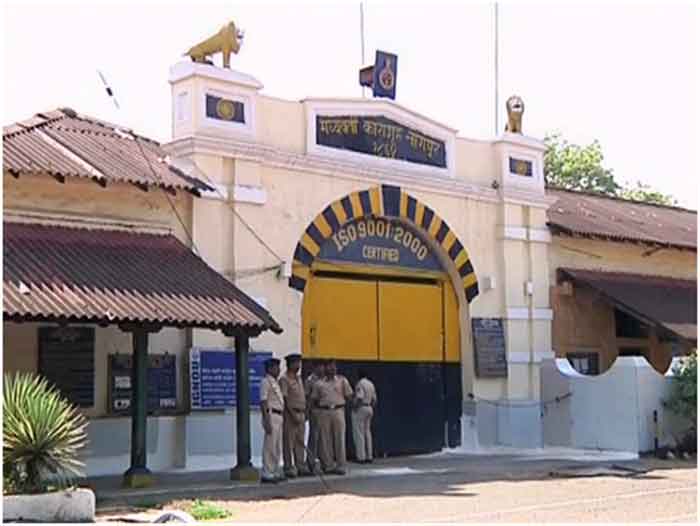
When the Maharashtra home ministry decided last year to reduce the number of prisoners in the state’s crowded prisons to reduce impact of the third wave of Covid, they were in for a surprise. Some inmates, it seems, did not want to be released at all.
According to jail officials, several prisoners who have been granted emergency parole have not availed this facility, refusing to come out of the jail. The reason behind this they say is that the prisoners feel apprehensive about the unemployment that awaits them outside.
If they come out and do not get any work due to the Covid situation they will have to live with the support of the family and become a burden to them. Staying inside the prison will at least ensure regular meals without any expenditure.
The Maharashtra home department started releasing prisoners from its over 47 jails on emergency parole and temporary bail in 2020 on the recommendations of a High Powered Committee (HPC) formed based on the Supreme Court’s direction in March 2020 to decongest the prisons.
According to a meeting report of the HPC the state’s prison population was reduced from 36,061 as on 31March 2020 to 26,379 as on 31 July 2020 as part of this initiative. The decongestion process in 2020 was held in three phases – one for under-trials, one for convicts in cases less than seven years jail term, and one for convicts in non-serious cases with more than seven years jail term.
However by 11 May 2021, the prison population had again climbed back to 34,733 of which 29,186 are under trial-prisoners and 5,547 are convicted prisoners. The maximum capacity of all of Maharashtra’s jails put together is 23,262.
The state of Maharashtra has the highest number of jails and sub jails and also the second highest number of central jails in the country. The state’s 64 jails include nine central jails, 28 district jails, four sub-jails, one women’s jail, one borstal school, 19 open jails, one special jail and one uncategorised jail.
 In December 2021 however the Maharashtra government told the Bombay High Court that several prisoners have not accepted the offer of interim bail and want to remain in jail to avoid the lack of jobs due to Covid lockdowns. According to prison officials, the prisoners believe that they will continue to get wages for their work inside the jail, even in the event of a strict lockdown. If they are outside it will be difficult to get wages.
In December 2021 however the Maharashtra government told the Bombay High Court that several prisoners have not accepted the offer of interim bail and want to remain in jail to avoid the lack of jobs due to Covid lockdowns. According to prison officials, the prisoners believe that they will continue to get wages for their work inside the jail, even in the event of a strict lockdown. If they are outside it will be difficult to get wages.
In one instance, at the Arthur Road Jail in Mumbai, around 26 prisoners refused to accept the emergency parole offer and preferred to stay back. The prison has a total capacity of roughly 1000 prisoners, though very often the numbers incarcerated can be double this approved figure.
“When many of them were released in the past, they were considered a burden on their families, as they did not get work in the event of lockdown. Some of them have now surrendered themselves to the police and sought financial assistance for their families” says Ravindra Vaidya, founder of Varhad, an organization working for welfare of jail inmates of Maharashtra. Varhad provided dry ration to the families of over 500 prisoners who could not earn during the lockdown last year.
Another reason for prisoners wanting to remain in jail is their bitter experience when they were released earlier. Apart from being unemployed they had to stay in Covid quarantine centers and were ostracised by their neighbours. Even their own families in some cases were unhappy with their return due to the stigma attached to their status as convicted criminals.
The issue of prisoners getting infected with Covid was highlighted in the media in February last year when former Delhi University professor GN Saibaba, who was serving a life sentence in Nagpur Central Jail for alleged links with Maoists, was found Covid positive. Along with Saibaba, three other jail inmates were also found infected. Saibaba is handicapped and moves about on a wheelchair.
In such a situation, there was a demand to get the political prisoners out of jail. This was the time when the second wave of the Covid epidemic knocked on doors of jails across the country, including Maharashtra. In Maharashtra, where the Covid epidemic wreaked the most havoc in the country, by April last year 197 prisoners were found infected in the state’s jails, out of whom 7 died.
The prison staff looking after the prisoners also could not escape infection and more than 94 jail staff came down with Covid. Of these, 8 employees died due to their ailment.
In the year 2020, when the first Covid wave arrived, the state had constructed 36 temporary jails in educational institutions to reduce the crowding of prisoners in the existing jail. These temporary jails were shut down when the wave abated but the government is considering reopening them to reduce the overcrowding. It is also considering reintroducing the practice of compulsory Covid testing of all new inmates before being taken into prison.
Shirish Khare has been associated with rural journalism for a long time and has been continuously reporting on the economic, social and health impacts of rural life during the Corona pandemic.
Related posts:
Related posts:
Views: 0
 RSS Feed
RSS Feed

















 January 11th, 2022
January 11th, 2022  Awake Goy
Awake Goy  Posted in
Posted in  Tags:
Tags: 
















